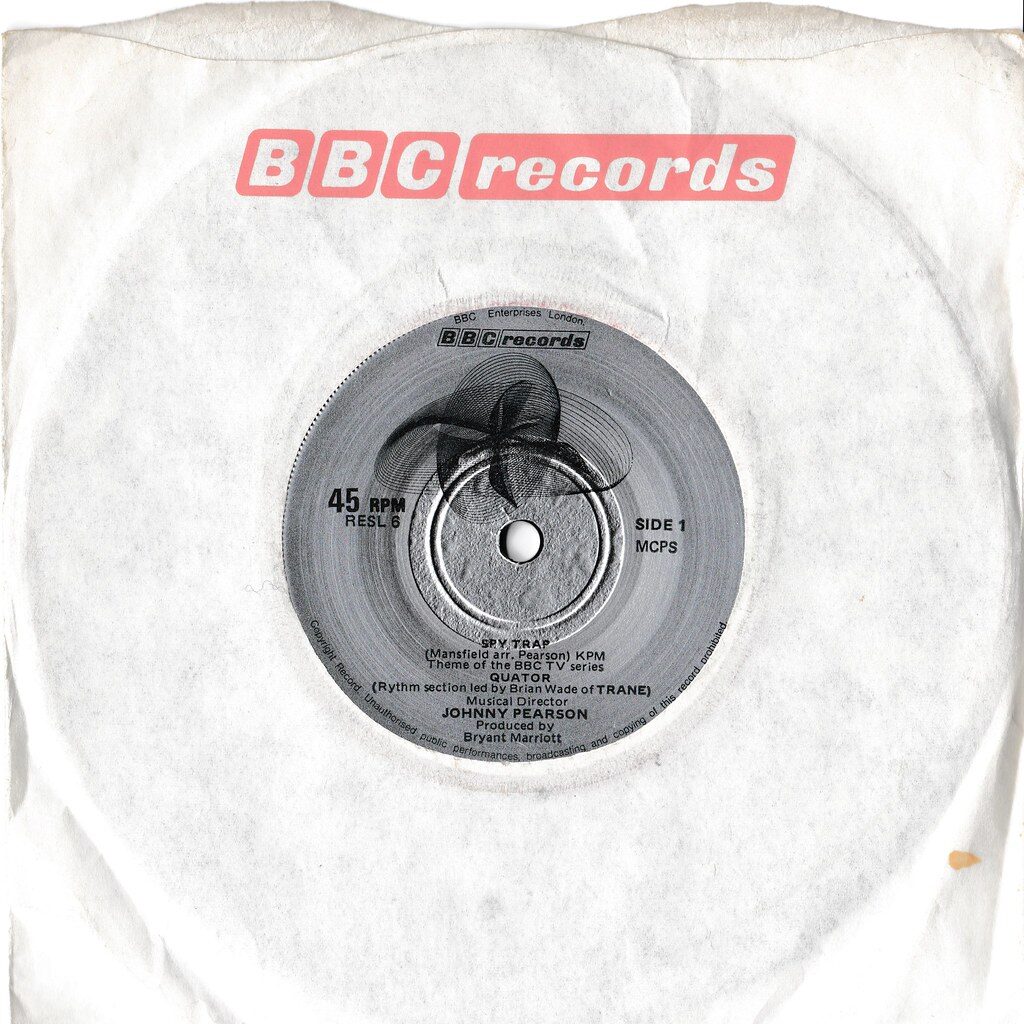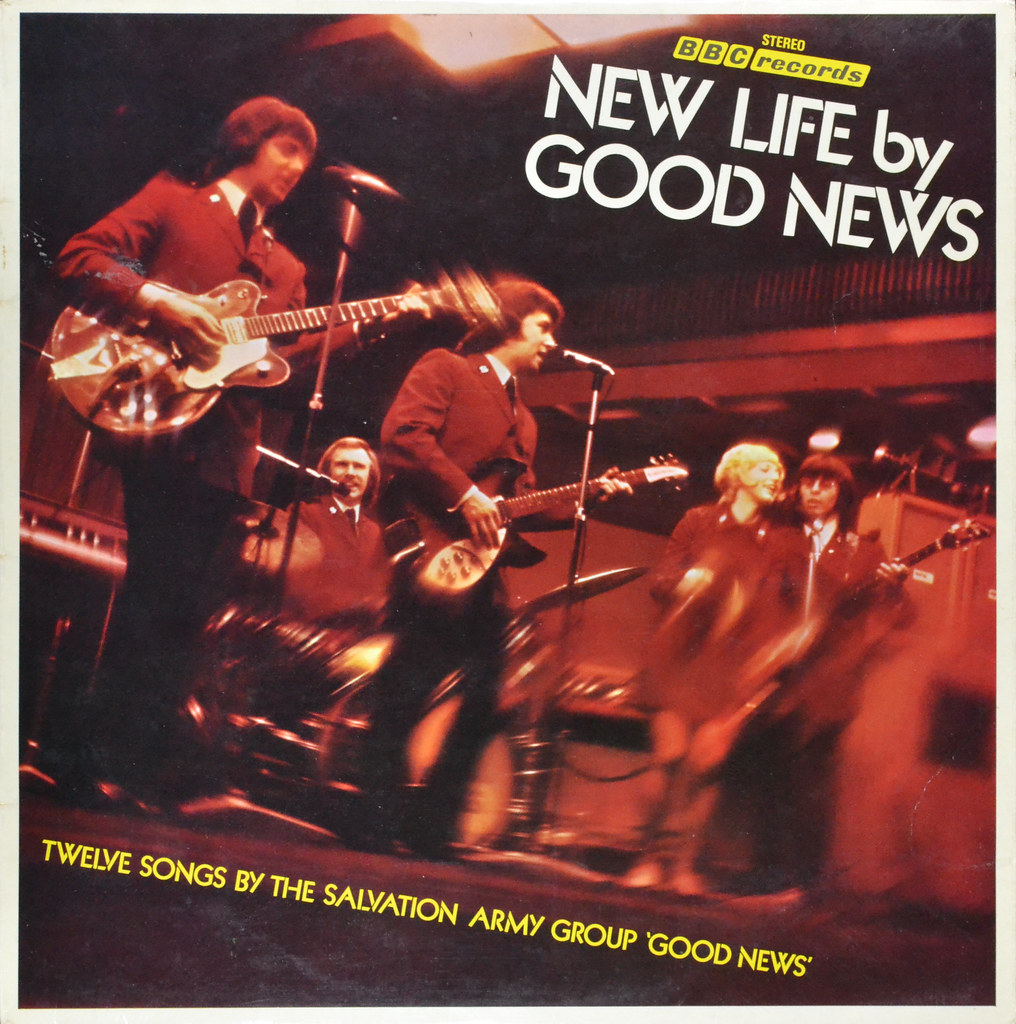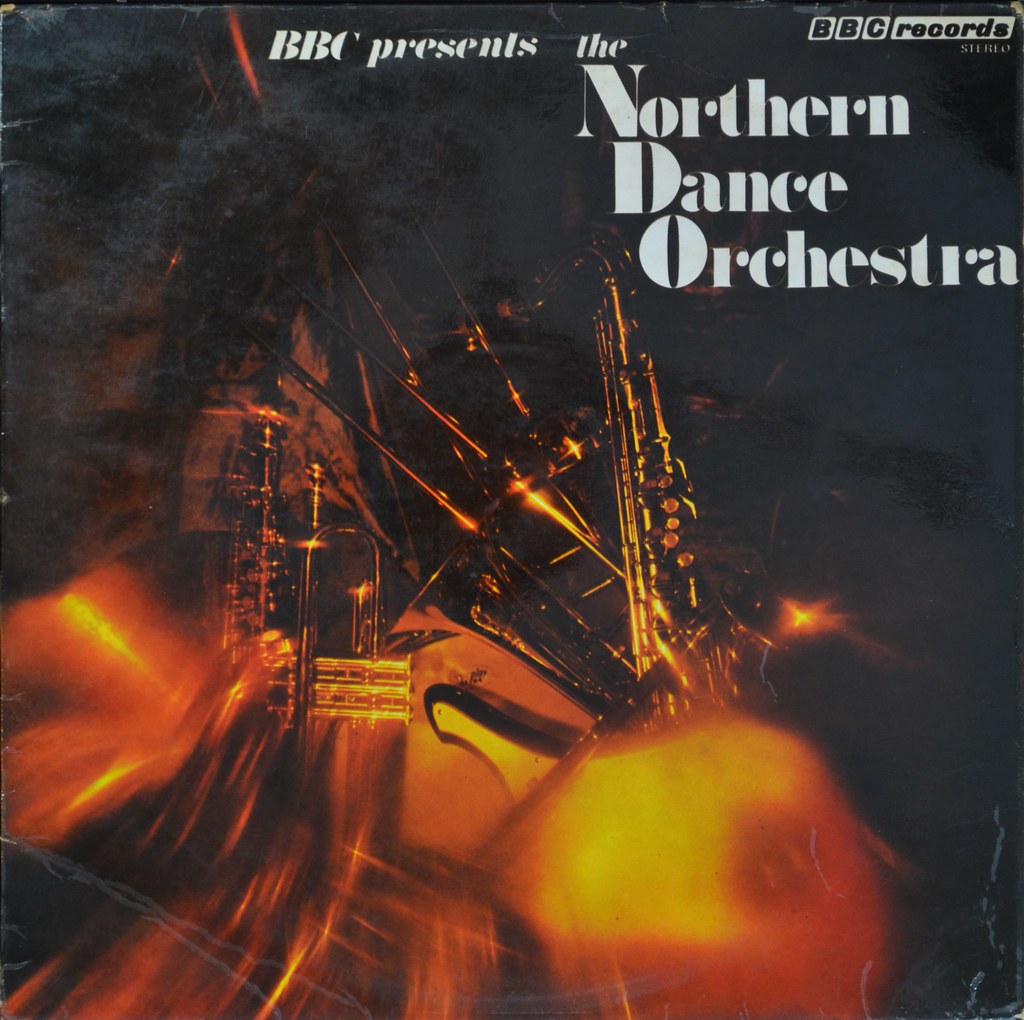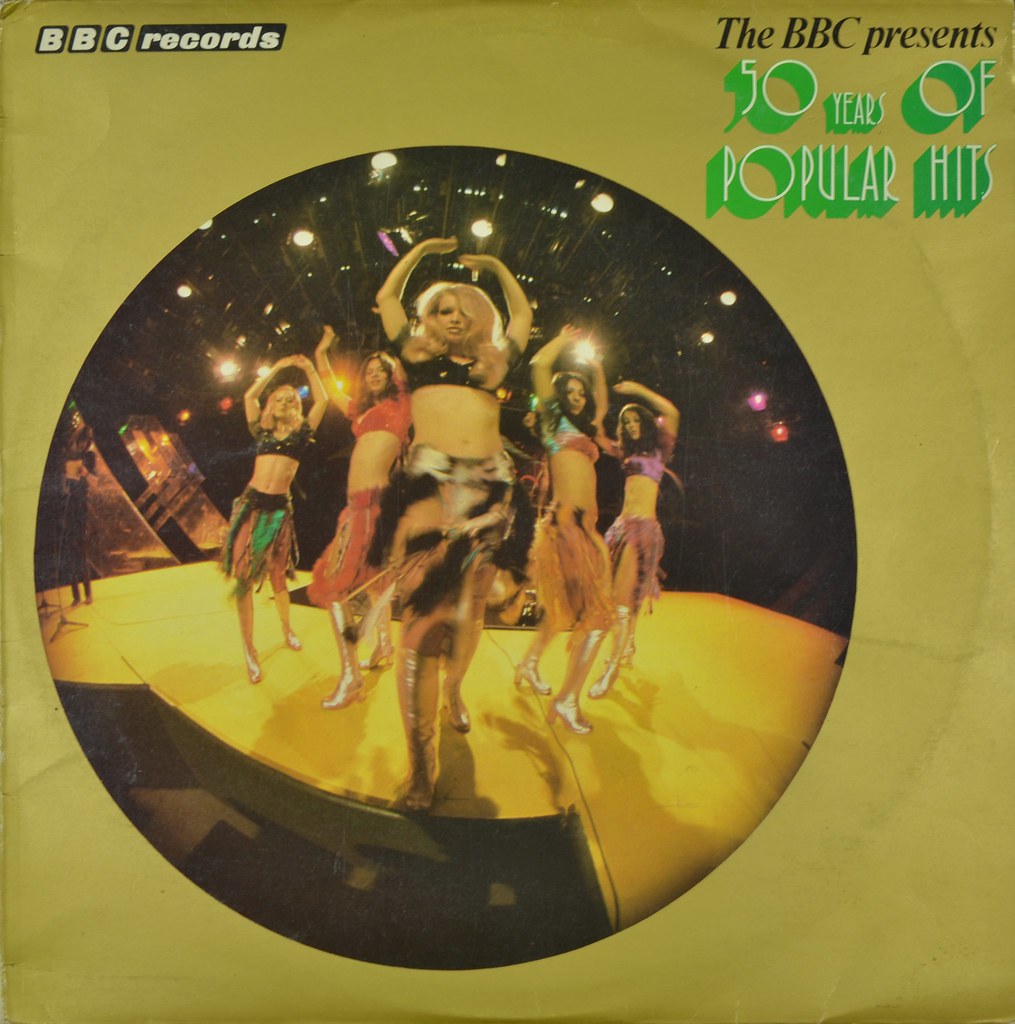
In 1971 the BBC Records logo was updated and the long-running rounded lozenges replaced the sharp-cornered rhomboidal design. This was a change imposed by the larger Beeb which had adopted this styling across the corporation.
It was not applied on all releases immediately. Waggoners Walk (RESL 5, July 1971) appears to be an extremely early example of using this logo. Spy Trap (RESL 6, February 1972) continued with the same simple but short-lived sleeve design for singles.

The LPs were much slower to fall in line though. The Music Of Africa (REC 130) had the new styling, and its copyright states 1971, but was not released until 1972.
Practically every release in 1972 adopted the new look from the start of the year though, it what seems to have been a well-coordinated effort to get every release in 1972 using the new branding. Maybe there was a memo about this and a deadline set from on high. However, whilst the classic lozenge logo was de rigueur for sleeve designs in 1972, the labels hidden away inside did not catch on and maintained the old look for some time.
The Study Series also largely continued in the previous styling, presumably because the set of harmonograph designs were already completed as a set in 1971, before the new logo directive was issued.
New Life (RESR 29, 1971) did manage to get hip to the new look although it is a funny sort of study aid. .

The BBC Handbook 1973 expounded on what the label was up to in 1972. “two major priorities became clear for BBC Radio Enterprises as 1972 opened : a gear shift up into a smoother and speedier method of distribution and greater concentration on the future production of LP’s which would appeal to ‘middle-of-the-road’ popular music tastes rather than to specialist spoken word or musical interests or, at the other end of the spectrum, to the ephemeral ‘pop’ markets.”
Firstly, depsite the formation of BBC Enterprises from the former TV and Radio entities in 1968 the view from 1972 was still that this was BBC Radio Enterprises! There was clearly some internal arrangement which kept the RE spirit alive.
Secondly, there’s talk of distribution – something that would be addressed more directly in 1973 – and focus on the MOR market.
It goes on to highlight the choice of singles, which were touched on above, and the LP from The Northern Dance Orchestra, which was the first release from an in house BBC orchestra. This is the start of the “BBC Presents” concept which was carried through to a whole series of releases later in 1972.

50 Years



